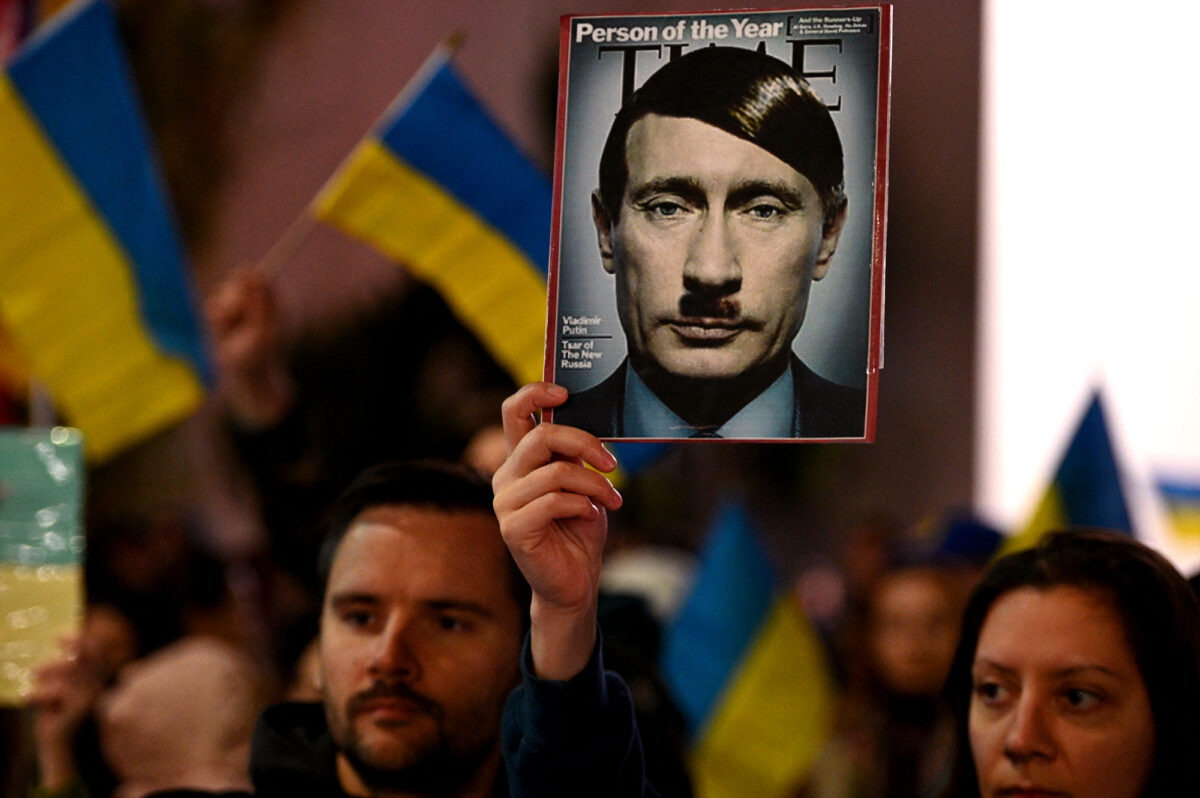Persons of African descent are experiencing the war in Ukraine differently.
Contemporary societies are microcosms of internalised racism and discrimination. Negative portrayals of Black people linked to misinformation and lies are in effect distractors to collective human sustainability.
I read WhatsApp messages, LinkedIn posts, and newspaper articles about racism being experienced by Black people fleeing Ukraine, and I think, human rights are for all of us.The sooner we humans learn and practise human rights for all, the more prosperous global societies will be.
Equity consultant Aiko Bethea mentioned that the media is “selective” to say the least, in terms of covering how Black people are experiencing the war in the Ukraine, and the overall elevated focus on this situation versus other conflicts across the globe.
A headline of an Irish Times article read: “Africans trying to flee Ukraine complain of being blocked and of racist treatment.” I pondered, is said headline to indicate that complainers are Black people? The Irish Times was not the only global newspaper with such incendiary headlines.
It is now the first week of March 2022, and global newspaper headlines on this pressing and urgent human rights matter seem to be changing swiftly. I will give credit to Africans and African diasporans who called out the racism immediately, as well as the African Union. Respect is also extended to allies. For instance, a LinkedIn post by diversity, equity and inclusion facilitator David Goldenkranz emphasised, if those of us living in so-called “Western nations” cannot recognise the irony of not letting Black and Brown Ukrainians seek asylum in our countries, then we have no right to keep saying “never again”.
Noted the criticisms about one country’s humanity being proposed as protector and another country being deemed as villain. Some are championed as heroines and heroes while others are perceived as suspects.
I am immensely encouraged by the accountability being demonstrated; indeed, there is no place for racism in the 21st century or any time. I was surprised by the United Nations, which can be known for its bureaucracy to deny or defer. I read also that the Ukraine government stepped up to allegations of racism.
Still, Africa continues to be hated and abused by the harmful actions of some. As a result, our amazing darkness and our magnificent blackness is not appreciated nor respected from the contexts of Europe and North America.
Ironically, most North American and European economies depend on Africa’s human, economic and agricultural resources. See the pragmatics around the African Continental Free Trade Area; equally, the collective economic, social, intellectual and political strengths among Africans and African diasporans.
Moreover, if Black women, for example, make a sound argument about the ills of racism during conflicts, then whataboutism can become an instant default. In managing director Shereen Daniels LinkedIn post, she says, “If you feign ignorance to the disproportionate amount of support levied to other refugees who are still in crisis, believing that the current situation with Russia and Ukraine is ‘more important’. That is racism.”
Racism is as dangerous as sexism, classism, ageism, lesbiphobia, biphobia, transphobia, homophobia, xenophobia, among others. While each phobia is different, all perpetuate dangerous exclusions and attempts to negate humanity based on prejudices.
In Thomas Kleven’’s 2009 article “Systemic classism, systemic racism: Are social and racial justice achievable in the US,” he contends that class and race, while not identical, are intimately interrelated and cannot be fully disentangled. A racist society will inevitably be a classist society because racist practices contribute to class distinctions. Kleven writes that the reforms needed to bring about a non-classist, non-racist society with equality of opportunity for all range from the eradication of classist and racist thinking to fundamental changes in the structure and operation of the economic, government and political systems.
Kimberlé Crenshaw’s 1991 paper “Mapping the margins: Intersectionality, identity politics and violence against women of colour” notes specifically that the intersections of race and gender only [emphasise] the need to account for multiple grounds of identity when considering how the social world is constructed.
Similarly, Kia Darling-Hammond in the 2022 article “Dimensions of thriving: Learning from Black lesbian, gay, bisexual, transgender, queer / same gender loving moments, spaces, and practices” specifies that there is no single accepted model of thriving; and that individuals or communities may construct their bridges differently. Ultimately, the bridge invites an analysis of what is needed for access, wholeness and a life well lived.
Racist actions must be condemned promptly to indicate that there is no ambiguity about racism’s destructiveness and harmfulness. Racism does not “sort of” hurt. Racism is not “sort of” toxic. Racism is detrimental to global societies.
Moreover, when we see racism, we better believe racism.



